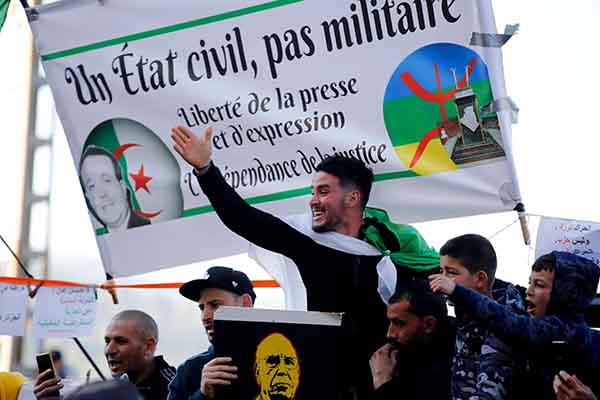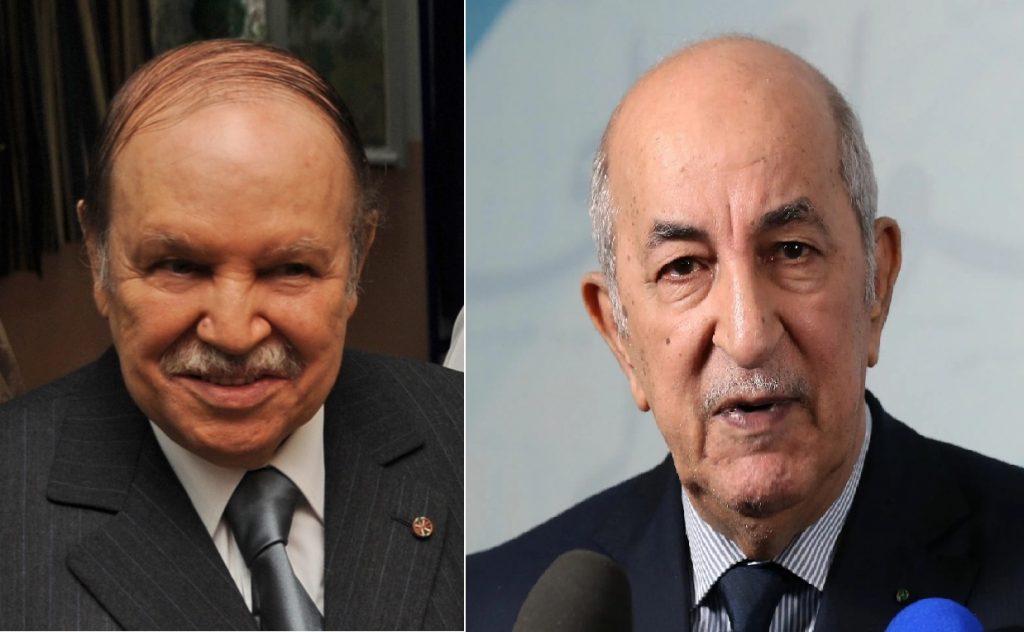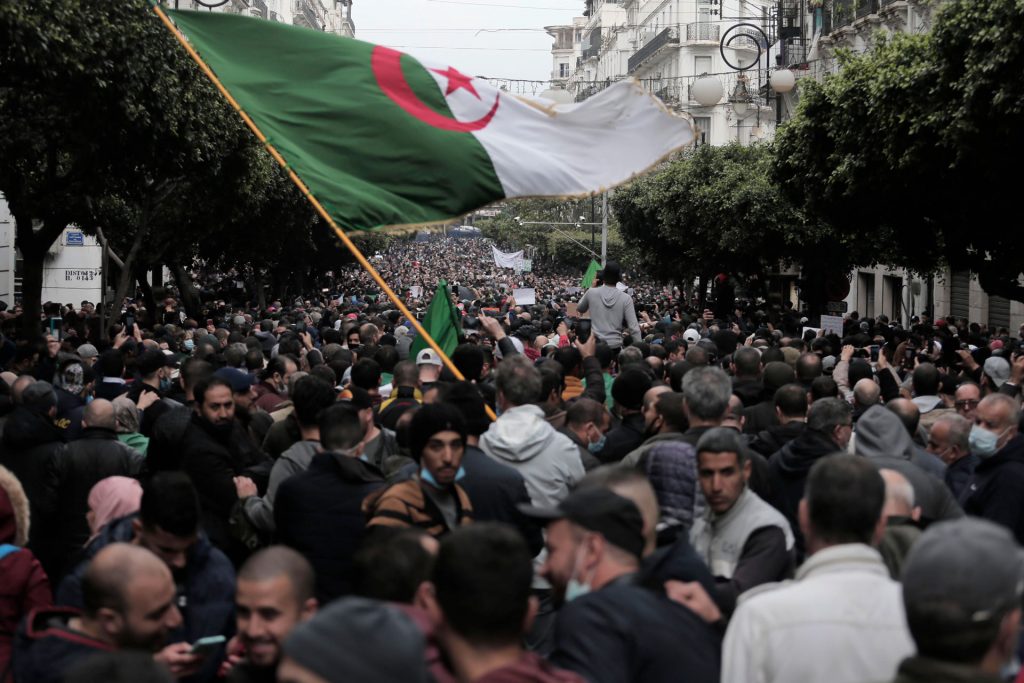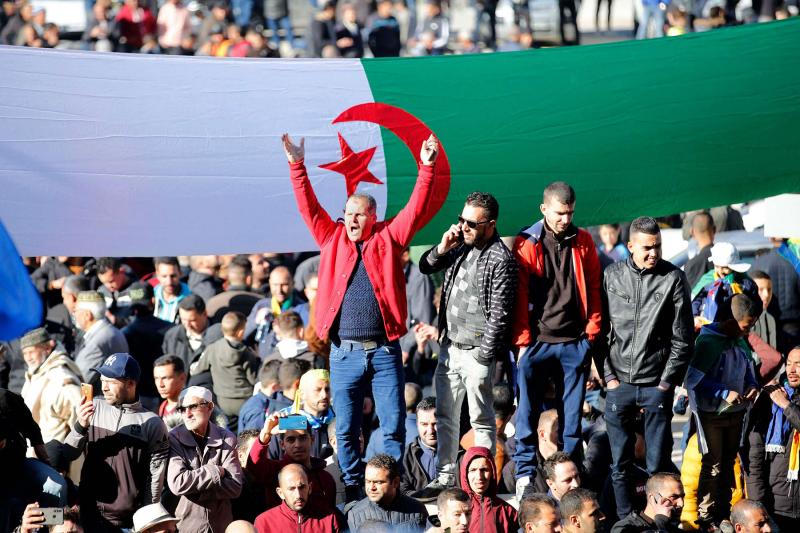
- Nationwide protests emerged against then-Algerian President Abdelaziz Bouteflika after his nomination for a fifth term sparked mass outrage from citizens
- The citizens were frustrated with growing corruption, sluggish economy and lack of freedom in a country besieged by the clout of the military and the Islamists.
- Bouteflika resigned on 2 April 2019 after months of mass protests. However, the Hirak members were unsatisfied with the resignation as they demanded a change in the entire system.
- New President Tebboune signed a decree adopting a new constitution but protesters allege that the army remains the center of power behind a civilian facade led by Tebboune.
- Though Arab Spring has ended in countries where it began, the flame of the spring is being kept alive by the Hirak movement.
- The Hirak pro-democracy movement is important for a country which has long felt trapped between the Military controlled regime and the Islamists.
On Feb 27, Algeria’s pro-democracy protest movement against the government and leaders of the Islamic country hit a one-year milestone. At least 59 people were arrested across the country in February, including 26 in Algiers, according to the CNLD prisoners’ rights group and AFP journalists. “The fateful hour has arrived,” read one banner brandished by demonstrators, while others waved Algerian and Berber flags.
A year ago, nationwide protests emerged against then-Algerian President Abdelaziz Bouteflika after his nomination for a fifth term sparked mass outrage from citizens frustrated with growing corruption, sluggish economy and lack of freedom in a country besieged by the clout of the military and the islamists.
Over the past year, the protest movement popularly known as the ‘Hirak’ (movement in Arabic) has succeeded in toppling Bouteflika and triggering the imprisonment of major figures from his regime. Those who have been imprisoned include several prime ministers. Peaceful mass protests have continued across the country every week since last year and Hirak is entering its second year.
Protesters have said that the movement will continue as they say that though the country has a new president, a new prime minister, a new parliamentary speaker, a new cabinet and a new army chief of staff, Algeria’s political system remains fundamentally unchanged. The protesters claim that their movement is non-partisan and aims for systemic change that includes judicial independence and the rule of law as well as the complete end of the old regime and of military interference in politics.
However, the pro-government voices and media say that the movement is foreign funded with an objective to weaken the country and the ruling establishment.
Resignation and After
Bouteflika resigned on 2 April 2019 after months of mass protests. With nearly 20 years in power, he was the longest-serving head of state of Algeria. However, the Hirak members were unsatisfied with the resignation as they demanded a change in the entire system.
After several delays, Abdelmajid Tebboune won the country’s presidential elections in December 2019. The members of Hirak consider Tebboune to be a part of the old regime as he formerly served as prime minister under Bouteflika. The authorities, who were initially tolerant of the protests, eventually began arresting and detaining the protesters.
As on ground protests were not possible due to the pandemic, Hirak began organizing rallies online, utilizing social media to collect ideas and disperse information. Online organizations were targeted by the government, which began prosecuting people for their posts.
On February 22, the Hirak marched to honor its two-year anniversary in Kherrata, the city where its first demonstrations were held in 2019. These marches were followed by other assemblies on Friday. Approximately 5,000 demonstrators waved Algerian flags and chanted, “A civilian state, not a military state,” harkening the movement’s original mission to remove ruling elites from the Algerian government.

President Tebboune had announced the release of dozens of political prisoners just ahead of the February protests. This decision followed Hirak members’ complaints that “measures to contain the Covid-19 outbreak were being used to silence dissent in an echo of how the former government treated opposition.” Many more protesters remain imprisoned.
In January, Tebboune signed a decree adopting a new constitution. But protesters allege that the army remains the center of power behind a civilian facade led by Tebboune. Despite the promises for a new constitution, no meaningful changes have been made to make the electoral system to make it more credible. There has been no empowerment of the parliament or judiciary both of which are constrained by the presidency and the military. The Hirak members also say that the new regime too has been limited to the members of Bouteflika clan.
Taming the protests
A Brookings study says that the Algerian regime has thus far survived the protests by using a combination of divide-and-rule tactics and targeted repression. It initially sought to polarize protesters along ethnic lines by arresting protesters waving the Amazigh flag. When that failed, it arrested prominent opposition figures, along with hundreds of other protesters. The regime also pursued December presidential elections despite public rejection and tried to co-opt certain opposition groups into this plan.
The new president appears to be following the same playbook of dividing and containing the protesters. Tebboune has released some 10,000 prisoners, including some opposition figures, but others remain in prison. He also met with a number of opposition leaders and proposed a reform package.

But there is a major trust gap between Tebboune and the Hirak — and similar promises were a recurring theme under Bouteflika. Protesters are likely to view any concessions as little more than a stalling tactic to preserve the regime.
The Algerian opposition too has been unable to unite around an alternative transitional road map. The lack of an alternative road map and the inability of the established opposition ensured that the Hirak movement continued.
Lack of International pressure
The Algerian government has benefited from the lack of international pressure to reform the political system. The UN and European Unions have on occasion made public statements about Algeria in favor of dialogue between the government and the Hirak movement members, but have made no concerted effort to sustain diplomatic pressure on the government to reform.
The U.S. government issued a public statement in March last year in favor of “a new path forward reflecting the will of all Algerians” but then went silent until the December elections. Russia has offered its support for the new government and hopes for even closer ties between the two countries.
Foreign media have largely stopped covering the protest movement, limiting pressure on the regime from transnational grass-roots groups.
Future of Hirak

The Hirak movement has sustained mobilization for over a year despite attempts to divide and co-opt the movement by the present regime. Hundreds of thousands of Algerians across the country continue to take to the streets each week, united in their demands for systemic change, freedom and dignity in the Islamic country.
The Hirak pro-democracy movement is important for a country which has long felt trapped between the Military controlled regime and the Islamists. Though Arab Spring has ended in countries where it began, the flame of the spring is being kept alive by the Hirak movement. The elite maintaining a stranglehold on Algerian politics thought that the pandemic and the attempts to suppress the movement would put an end to it.
However, with most of the demands from 2019 still being unfulfilled, the anniversary of the Hirak movement gave more reason to fight for a democratic Algeria.
